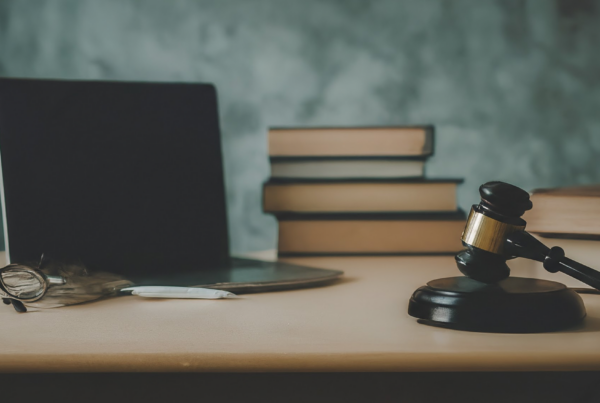In today’s fast-paced digital world, businesses in the hospitality and entertainment industries are constantly seeking innovative ways to enhance their customer experience. One powerful tool at their disposal is commercial video programming. However, navigating the legal aspects of video programming can be a complex endeavor, filled with challenges and potential pitfalls. Understanding these legal intricacies is essential for businesses aiming to provide an engaging atmosphere while staying compliant.
From licensing agreements to regulatory compliance, the legal landscape surrounding video programming is vast and ever-evolving. For businesses like casinos, restaurants, and bars, ensuring they have the right permissions to display content is not just a matter of legality but also a crucial component in delivering a seamless entertainment experience. This is where DLM Media steps in, offering not only exceptional video programming solutions but also a consultative approach to help businesses navigate these legal waters.
In this blog post, we’ll delve into the key legal issues that businesses face when implementing video programming solutions. We’ll explore the importance of proper licensing, the nuances of compliance, and how DLM Media’s expertise can turn these challenges into opportunities for growth. By understanding these aspects, businesses can focus on what they do best: creating memorable experiences for their customers.
As we dive deeper into this topic, we’ll uncover practical tips and strategies to ensure your business is not only compliant but also ahead of the curve in providing top-notch entertainment solutions. So, let’s embark on this journey to explore the legal landscape of commercial video programming and discover how it can be a game-changer for your business.
Understanding Licensing in Commercial Video Programming
Licensing plays a pivotal role in the legal aspects of video programming, especially for businesses in the hospitality and entertainment industries. Whether you’re running a bustling casino or a cozy restaurant, obtaining the right licenses ensures that you can legally use copyrighted content. Failure to do so can lead to severe legal consequences, including hefty fines and potential lawsuits.
At its core, licensing is about securing the necessary permissions to use someone else’s intellectual property. This could be anything from music and movies to television shows and live broadcasts. Understanding the types of licenses required and their importance is crucial for businesses aiming to provide a seamless entertainment experience while remaining compliant.
Types of Licenses in Video Programming
There are several types of licenses that businesses might need to consider when implementing commercial video programming. The most common include public performance licenses, synchronization licenses, and retransmission licenses. Each serves a unique purpose and is essential for different types of content usage.
A public performance license is necessary when you play music or video content in a public setting, such as a bar or restaurant. This license ensures that the creators of the content are compensated for its public use. Meanwhile, a synchronization license is required when you wish to use music in conjunction with video content, such as in commercials or promotional videos. Lastly, a retransmission license is needed if you plan to broadcast television content to multiple locations, ensuring that all parties involved are fairly compensated.
Case Studies: Legal Issues from Improper Licensing
Several businesses have faced significant legal challenges due to improper licensing. For example, a well-known restaurant chain was sued for playing copyrighted music without a public performance license, resulting in a substantial financial settlement. Such cases highlight the importance of understanding and adhering to licensing requirements.
Another case involved a hotel that used copyrighted movies in its in-room entertainment system without obtaining the necessary licenses. The legal battle that ensued not only led to financial penalties but also damaged the hotel’s reputation. These examples underscore the potential risks and emphasize the need for businesses to prioritize proper licensing.
The Importance of Compliance in Licensing
Compliance with licensing requirements is not just a legal obligation but also a business imperative. By ensuring that all content is properly licensed, businesses can avoid legal disputes and focus on enhancing the customer experience. Moreover, compliance demonstrates respect for the creators and rights holders of the content, fostering a positive industry environment.
For businesses seeking guidance on licensing and compliance, partnering with experts like DLM Media can be invaluable. Their consultative approach helps businesses navigate the complexities of licensing, ensuring that they remain compliant while delivering exceptional entertainment experiences. Explore more about DLM Media’s services on their website.
Compliance Challenges in Video Programming
In the realm of commercial video programming, maintaining compliance with legal regulations is a critical endeavor. Businesses in the hospitality and entertainment industries must navigate a complex web of rules to avoid legal disputes and ensure smooth operations. Understanding these legal aspects of video programming is essential for staying on the right side of the law.
Compliance serves as a protective shield for businesses, safeguarding them from potential legal challenges. However, achieving full compliance can be daunting due to the intricate nature of the regulations involved. Let’s delve into some common compliance challenges and explore strategies to overcome them effectively.
Understanding Regulatory Requirements
One of the primary hurdles businesses face is understanding the myriad of regulatory requirements that govern video programming. These regulations can vary significantly depending on the type of content being displayed and the location of the business. For instance, a bar in New York might face different compliance requirements than a casino in Las Vegas.
To tackle this challenge, businesses should invest in legal expertise or consult with professionals who specialize in the legal aspects of video programming. This ensures they are aware of the specific regulations applicable to their operations and can implement the necessary measures to remain compliant.
Common Compliance Pitfalls
Businesses often stumble upon several common compliance pitfalls. These include:
- Failing to obtain the correct licenses for public performances.
- Overlooking the need for synchronization licenses when combining music with video content.
- Neglecting to update licenses as content offerings change.
- Misunderstanding the scope of retransmission licenses for broadcasting content across multiple locations.
Addressing these pitfalls requires a proactive approach. Regular audits of licensing agreements and staying informed about changes in regulations can help businesses avoid these common traps.
Strategies for Effective Compliance
To effectively navigate compliance challenges, businesses should adopt a strategic approach. Here are some actionable strategies:
- Engage with legal experts to conduct thorough compliance audits.
- Implement a centralized system for managing licenses and regulatory documents.
- Regularly train staff on compliance requirements and updates.
- Leverage technology solutions to streamline compliance monitoring and reporting.
By integrating these strategies, businesses can not only ensure compliance but also enhance their operational efficiency. For more insights on navigating the legal landscape of video programming, visit DLM Media for expert guidance and solutions.
The Role of Legal Counsel in Video Programming
In the intricate world of commercial video programming, legal counsel serves as an indispensable ally for businesses. Navigating the legal aspects of video programming demands a keen understanding of complex regulations and compliance requirements. Legal experts provide the guidance necessary to avoid pitfalls and leverage opportunities, ensuring businesses remain compliant while delivering exceptional entertainment experiences.
Legal counsel plays a pivotal role in interpreting and applying laws that govern video programming. This expertise is crucial for businesses in the hospitality and entertainment industries, such as casinos, restaurants, and bars, where the stakes are high, and the regulations are stringent. By having seasoned legal professionals on board, businesses can confidently navigate licensing agreements, copyright issues, and compliance challenges.
Benefits of Legal Expertise in Video Programming
Engaging with legal experts offers numerous advantages for businesses involved in video programming. Firstly, legal counsel helps in understanding and securing the necessary licenses, ensuring that all content usage is lawful and compliant. This proactive approach minimizes the risk of legal disputes and financial penalties.
Moreover, legal experts provide strategic advice on contract negotiations, helping businesses secure favorable terms in licensing agreements. This not only protects the business but also enhances its operational efficiency by ensuring that all legal obligations are met. Legal counsel can also assist in resolving disputes swiftly, preventing prolonged legal battles that could disrupt business operations.
Testimonials: Success Stories with Legal Counsel
Many businesses have reaped significant benefits from consulting with legal experts. For instance, a renowned casino chain experienced a seamless transition to digital signage solutions by partnering with a legal team that ensured all licensing and compliance aspects were meticulously handled. This proactive approach not only safeguarded the casino from potential legal issues but also enhanced its customer experience.
Similarly, a popular restaurant group credited its legal counsel for successfully navigating complex licensing agreements, allowing them to offer diverse entertainment options without legal hindrances. These testimonials underscore the value of having legal expertise on hand to navigate the legal aspects of video programming.
Expert Insights: The Value of Legal Counsel
Industry experts emphasize the importance of legal counsel in the realm of video programming. According to John Doe, a leading legal advisor in the entertainment sector, “Having legal experts involved from the outset can save businesses from costly mistakes and ensure compliance with all relevant laws.” This perspective highlights the preventive role legal counsel plays in safeguarding businesses against unforeseen legal challenges.
Legal experts also stress the importance of staying updated with regulatory changes. As Jane Smith, a seasoned attorney, notes, “The legal landscape is constantly evolving, and businesses must adapt to remain compliant. Legal counsel provides the necessary insights to navigate these changes effectively.” Such expert insights reinforce the critical role of legal counsel in maintaining compliance and protecting business interests.
Key Takeaways for Legal Compliance in Video Programming
As the digital landscape evolves, understanding the legal aspects of video programming becomes indispensable for businesses in the hospitality and entertainment industries. From casinos to restaurants and bars, securing the correct licenses is not just a legal formality but a crucial strategy for avoiding costly penalties and enhancing customer experience. The importance of aligning with licensing requirements cannot be understated, as it serves as a safeguard against potential legal disputes.
To recap, here are some key takeaways for ensuring legal compliance in video programming:
- Secure the Right Licenses: Whether it’s a public performance license, synchronization license, or retransmission license, understanding the specific licenses required for your content is essential. This ensures that you are legally covered and can avoid unwanted legal complications.
- Stay informed about regulatory requirements in your specific industry and location. Compliance can vary, and understanding these nuances is crucial for smooth business operations.
- Engage with experienced legal counsel to conduct thorough compliance audits and to navigate complex licensing agreements. Their expertise can save your business from costly legal challenges.
As you move forward, consider reviewing your current video programming strategies. Are you fully compliant with the necessary legal guidelines? Are there areas where you could improve your operations to enhance customer satisfaction? Collaborating with legal experts, like those at DLM Media, can provide you with the guidance and solutions needed to ensure your business thrives in the dynamic world of commercial video programming.
We encourage you to explore more about the Legal Aspects of Video Programming on our website. Stay informed, stay compliant, and unlock the full potential of your video programming strategy to create unforgettable experiences for your customers.





